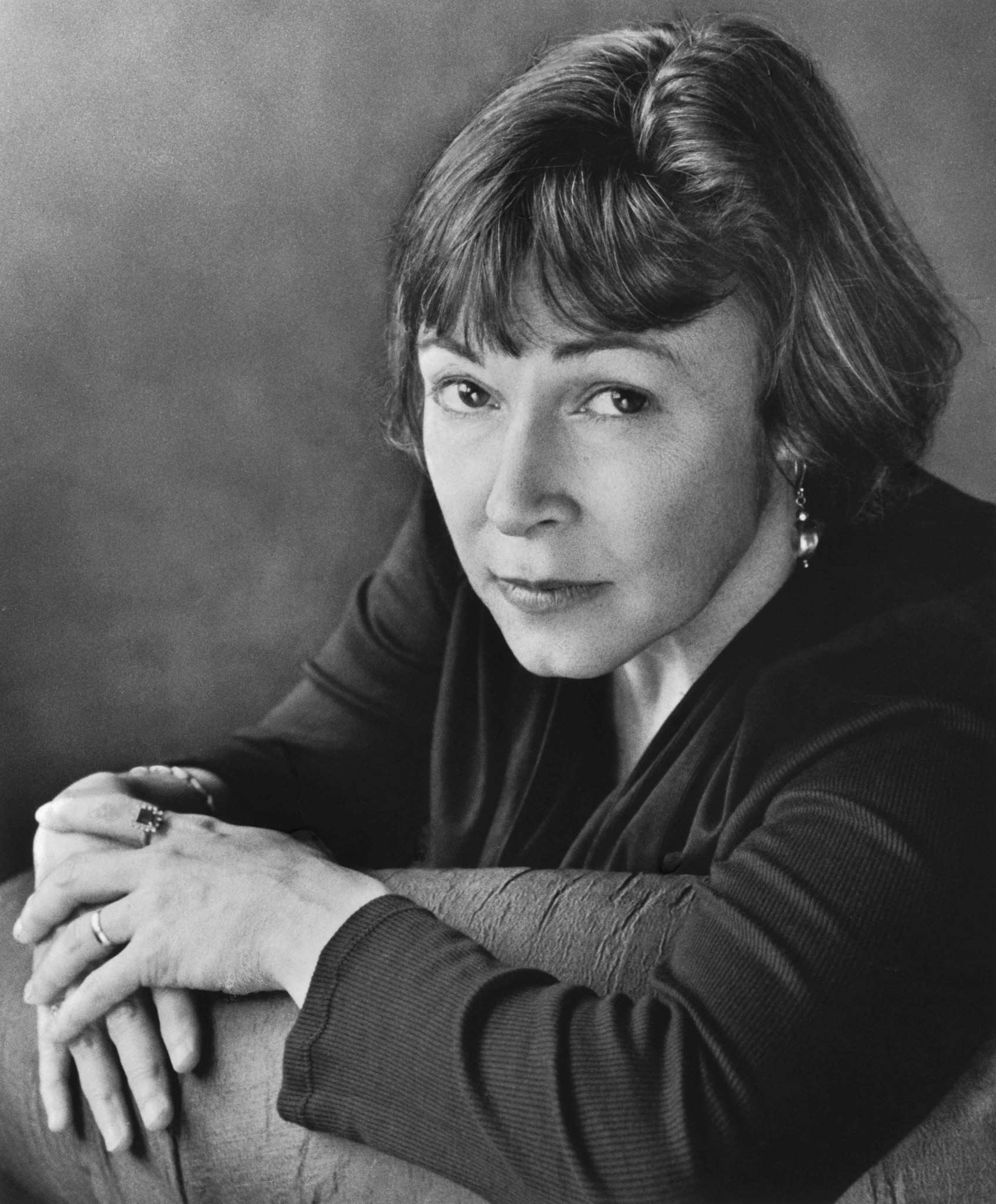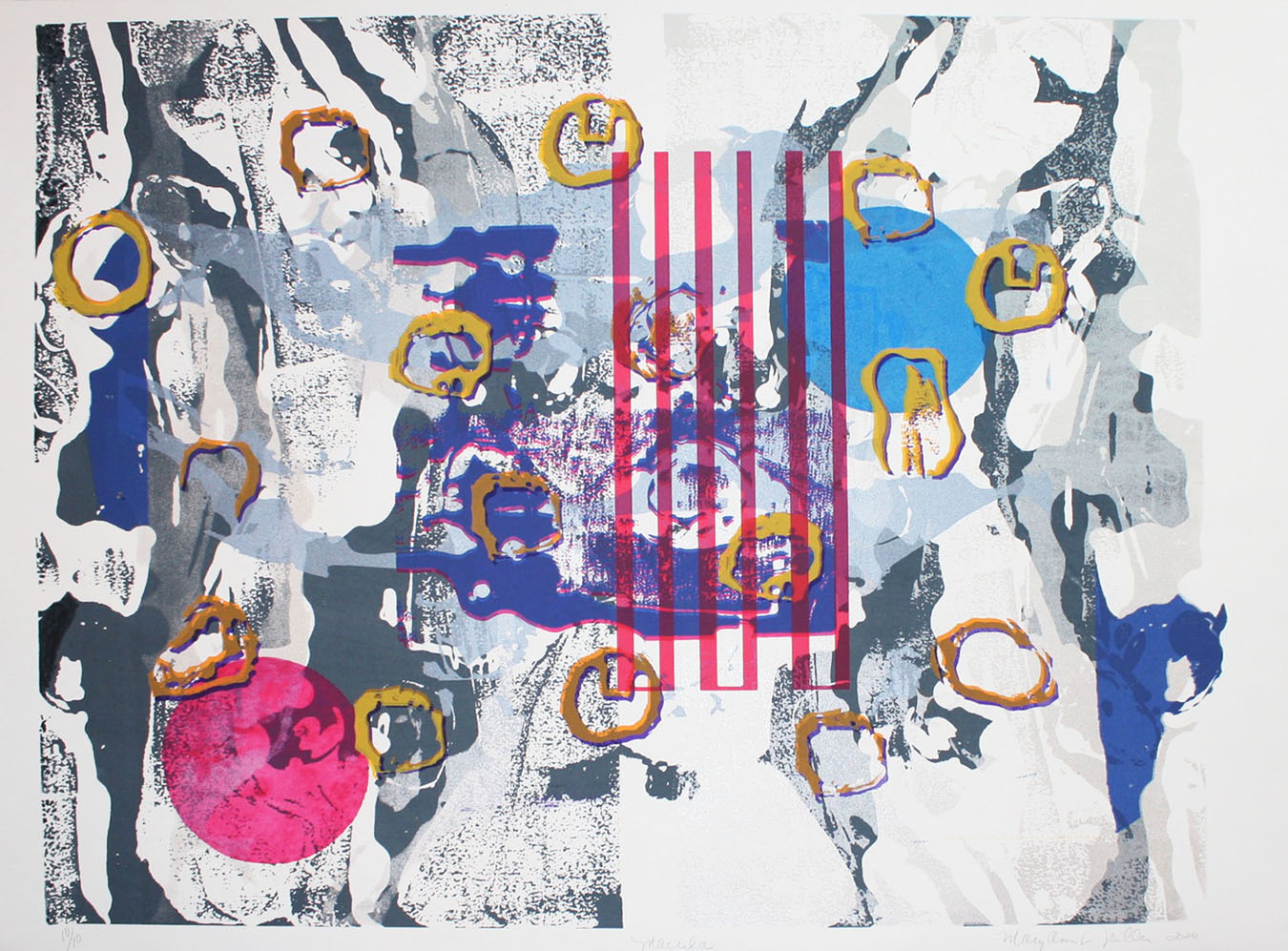Myrna Stone
Upon the Passing of Virginia Clemm Poe
I
Fordham, the Bronx, January 30th, 1847
At the moment of her death, her soul’s rout
matters less to her Eddy than does the wasting
of her body and its impending disposal. Do not,
he cautions Maria, move her until Mrs. Hastings
and her ladies draw nigh. But Hastings herself
has passed one day prior, and her followers, new
and therefore untested, are, in the end, of little help
except to fetch and boil water before they withdraw.
It is left to Maria to remove her daughter’s
linen shift, abloom with its dark hemorrhagic blood,
and wash from her last child’s beloved flesh its dire
secretions. After, what she desires most is the fuss
of petticoat and fan, shawl and bonnet, enacted
by Virgie in the mercury sheen of the looking glass
a scant two years before, her face and form reflected
as brightly as the morning sky turning itself to lapis.
By noon, food and money enough for a neat
burial have arrived. Every soul in Fordham knows,
it seems, the family’s dilemmas. The cottage, meet
in its black crape bunting and discreet poverty, draws
and then repels gangs of children who twiddle
up and down the lane, gawking and twirling hoops
with sticks, though even the littlest of them unriddle
the trappings of death. At half past three, finally loosed
from all propriety and slumped upon the hearth
in a liquored-up torpor, Edgar gives himself over
to weeping. Of those present, only Maria has heart
and words to soothe him. Dusk falls fast, and supper
is set out by six, the mourners standing to eat
since chairs are few. By eight they have departed.
Pallid and ill, Edgar sits up, stands, and then retreats
to the room at the front of the cottage, where, depleted
of any earthly quickening, Virginia is laid out.
In her stillness is something of her early, ethereal
beauty, and he feels with his fingers his pulse at last
beating clearer, finally measurable, deep and arterial.
II
Fordham, the Bronx, January 4th, 1848
In a letter to his fan and friend, George Evelet,
Edgar writes a forthright recital of his internal trials
during the five and a half years of Virginia’s descent
into consumption. I became insane, with long intervals
of horrible sanity, he confesses. During these fits
I drank—God only knows how often or how much—
for I had nearly abandoned all hope of a permanent
cure when I found one in the death of my wife. Such
sentiments Maria understands and accepts, for he
is her nephew, and therefore her Eddy as decidedly
as he had been Virgie’s. Filled with odd, otherworldly
imaginings, he is her visionary surrogate child and she
the only mother left to him. Since Virgie’s death
she has taken to sitting up with him through the night,
dozing, or listening as he explains the breadth and depth
of a fresh fixation, stopping often to ask if she fathoms it.
What can she say but yes? Behind him is his old
melancholy, subverted by his fervor in these first new
days of the year for Eureka, his treatise on cosmology.
When he was composing it, Maria will recall, we used
to walk up and down the garden, his arm around
me, mine around him, until I was so tired I could not
walk. Ahead are lectures written, lost, and later found,
two marriage proposals and yesses that come to naught,
and one declaration of passionate, undying love
for his “Annie,” a certain Nancy L. H. Richmond,
married and with two children, who raptly envelops
him inside the society of her family. It is her Christian
duty, she explains, to offer his genius ease.
Ahead, too, is Edgar’s increasingly quick embrace
of drink and its resultant fugues and delirium tremens
to which Maria gives herself as sole and soulful brake.
Mannish in appearance, too tall by half, devoid
of any redeeming corporeal grace, she is his fount
of solace, just as she had been her Virgie’s. At the end,
riven from them, she will bless them each, as is her wont.
III
Fordham, the Bronx, Winter, 1849 - 50
Though she denies the presence of spirits,
Maria’s discerning eye perceives in Edgar’s visage
an ever more wraithlike aspect. New now to her list
of aids is lavender tea to promote his sleep, and sage
to spur his appetite and calm his chronic nervy
psyche. Beginning on January eleventh, in a siege
of frenetic energy, he writes from morning till evening
for a week without relief. He seems possessed, his need
nearly as perilous to his health as the drink.
In her daybook, Maria asks, Is there no morphine
for his soul but words? then, contrite, quickly inks
it out, for she, too, pursues in the schema and sheen
of language the very forgetfulness he seeks.
The nights grow polar, punctuated by early dark
and the smoky, suffocative air of the cottage’s east
room where she and Edgar huddle beside the hearth,
he in his rocking chair over a book or journal,
and she, at her stitchery, on a stool nearby. Thus
they resist, till the ten o’clock hour, sleep’s nocturnal
pull, though later neither escapes, in their narrow beds,
its grim reconjuring of Virginia’s passing.
For months now Edgar has taken a daily walk
to the High Bridge at Harlem and back, packing
little but a small lantern. Maria, concerned, tracked
him once, then left him at the end of his trek
entirely elsewhere, collapsed beside Virgie’s
grave in a riot of thimblebells and purple vetch.
What else could she do but allow him the mercy
of privacy, for grief is, after all, ineffable.
Today, she has taken in a stack of ladies’ linens
to wash and mend, but has not yet begun. As full
as her pocketbook of debt may be, she has reason
to write instead: My Eddy plies a new course
in a poem he calls The Bells. St. John’s ringers
spurred him to it. I hear him in the attic, his voice
rising in chant or song, stronger and ever stranger.
IV
The Church Home and Infirmary, Baltimore,
Maryland, early February, 1871
Having outlived all those she has loved,
Maria, prickly and unsure of gaining heaven,
finds respite from the Home’s emotional void
in her packet of letters, each one an unleavened
portrait of the distant past. She mouths
the words as she reads after the supper hour
when the dormitory quiets and the women about
her in their close cots nap or map their ire in dour
whispers. They are her sisters, Maria sees,
in their privation, and better off crustier for it
than not. A little over a score ago, her Eddy was
abed here, perhaps in this very ward, as his spirit
unspooled. It was not a home for the poor
then, but a teaching hospital. If there is irony
in loss, or synchrony, there is no proficient oar
to navigate it, no hot bath or tea, no pastor’s pious
and useless proclamations, no drug’s divine
amnesia, and no text. Nonetheless, she submits
each day one more page to the tremulous incline
of her magnifying glass. Today it states, Herewith,
dear Muddy, is a dollar and a half taken
from the palmful that Mr. C. Dickens so kindly
gave me. Use it as you see fit. Eddy. It is Dickens
now, more than any other, who lessens her poverty
with his largesse. After Edgar’s death
she tamped down her ample pride and sheltered
with various loosely knit kin, their all too transient
aunt abroad like a wry shade in their attics and cellars,
or with those women and men who kept her
richly, but briefly, in their fine, fussy chambers
out of loyalty to Edgar’s memory. Here, however,
the only lure is the sweetness of the silence the hours
after midnight offer. In one of them, soon,
she will find herself becoming at last untethered
even as she reads, and rereads, her Eddy’s swoon:
I must die….Come to me. We can but die together.
A Thin Place
A mesmerizing location where heaven and earth overlap
No order or law we know explains the consort
of lure and lore, or why a bridge which soars
four dozen feet above a gorge in Dumbarton,
Scotland, compels dogs both small and large
to jump its parapets to their breakage or death.
What causes it, one local offers, is the heady
scent of animals below which drives dogs quite
mad….Mad or not, three hundred have leapt
into the hushed plush crevasse through which
the Overtoun burn wends its green stitchery,
having drawn dozens of them, already unsound
and spellbound, into its watery depths to drown.
Others, airborne from parapets closer to entry
points onto the bridge, find a more temporary
rest in the gossamery ferns along the burn’s
mossy berm. Our resident spirit here spurs
them on, happy to steward their mortal race,
another local says. That specter, a Mrs. Grace
White, her name the only import given her
at birth and marriage, is most often referred
to now as the White Lady of Overtoun House
who, for three decades, refused to renounce
widow’s weeds as she mourned her beloved.
She appears irregularly, ghosting her leaded
casements overlooking the gorge, and, less
often, drifting in her fallow garden’s gorse,
though she and the dogs, in the way of all such
thin places, remain aloof and predictably mute.
|
|
 |
 |
| AUTHOR BIO |
| Myrna Stone is the author of five books of poems, the most recent being Luz Bones, released by Etruscan Press in 2017. A two-time Ohioana Book Award Finalist, and a Pushcart Prize nominee, her work has appeared in nine anthologies and in over fifty journals including Poetry, Southwest Review, The Massachusetts Review, Boulevard, Nimrod, and River Styx. Among her other awards are three Ohio Arts Council Individual Excellence Awards, a full fellowship to Vermont Studio Center, the 2001 Ohio Poet of the Year award, the 2002 Poetry Award from Weber: The Contemporary West, and the 2017 New Letters Prize in Poetry. Stone is a founding member of The Greenville Poets, based in Greenville, Ohio. |
|
| POETRY CONTRIBUTORS |
 Jane Blanchard Jane Blanchard
 Maryann Corbett Maryann Corbett
 Jean L. Kreiling Jean L. Kreiling
 Libby Maxey Libby Maxey
 Susan McLean Susan McLean
 Amanda Ryan Amanda Ryan
 Jane Scharl Jane Scharl
 Wendy Sloan Wendy Sloan
 Myrna Stone Myrna Stone
 Faith Thompson Faith Thompson
 Cara Valle Cara Valle
 Elinor Ann Walker Elinor Ann Walker
 Doris Watts Doris Watts
 Marly Youmans Marly Youmans
|
|
|
 |
 |
This issue of Mezzo Cammin is dedicated to its Founder and Managing Editor for 15 years, Dr. Kim Bridgford (1959-2020). [Photo: Marion Ettinger].
The 2020 Poetry by the Sea conference was canceled due to COVID-19. The next conference is planned for May 25-28 2021.
|
|
|
 |
|
|
|
 |
| MaryAnn Miller: And now we find ourselves in the midst of a pandemic, everything I’ve done seems small compared to the suffering happening in our country. Artists have been jammed up by these hard, hard times, unable to work, unable to think or write. Part of the creative life is getting used to fallow periods, expecting them to happen after I have given everything to a project, and the empty time when it’s over. After a terrifying period of fallowness, deeper than I had ever experienced, finally, I had a response to the unbearable sadness. We who remain live through these sad times and say our goodbyes so unwillingly. To those we know, like Kim Bridgford, to those we don’t know, like the millions of Covid-19 patients. I remain terribly sad, but I continue to work.
|
|
|
|
|
|
 |
|
 |
|
|
|
|
